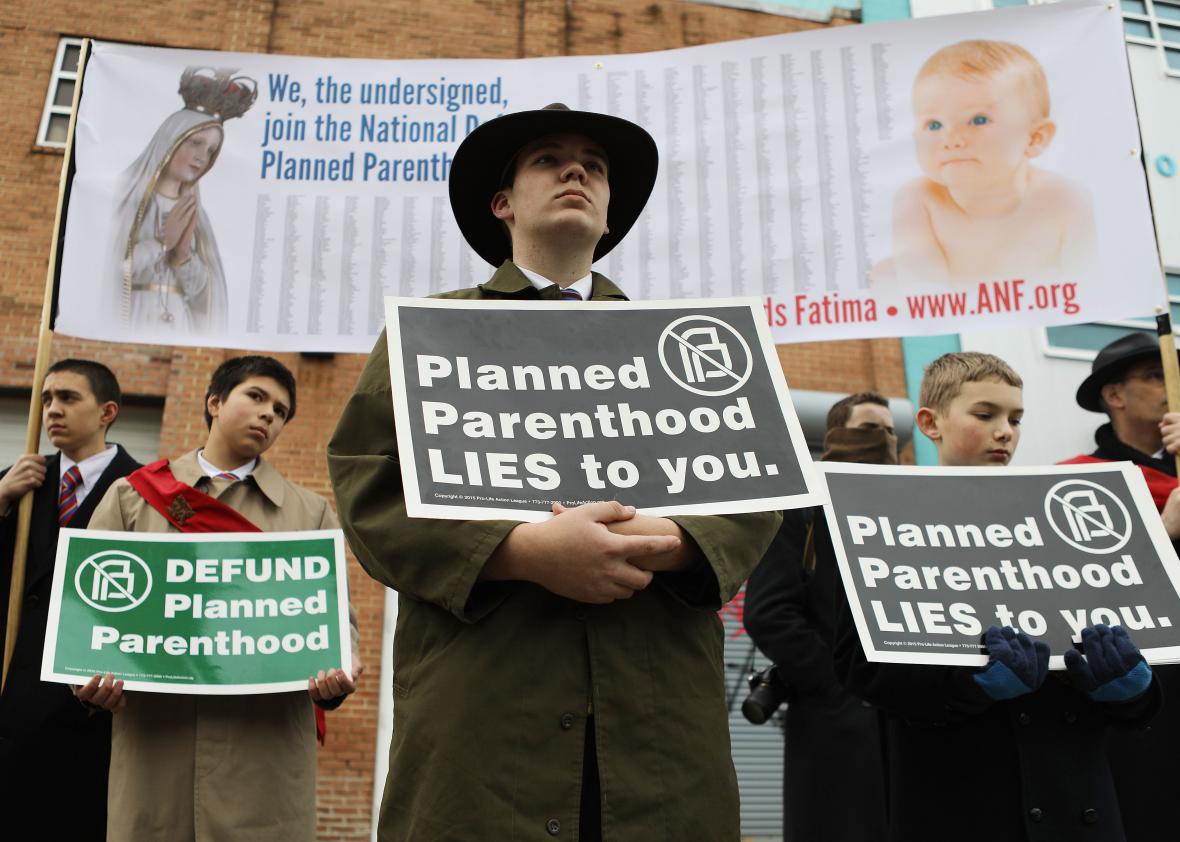A federal appeals court on Tuesday affirmed the right of medical patients in Maine to receive care without noisy disruptions from protesters. The three-judge panel overturned a previous judge’s ruling that found part of the Maine Civil Rights Act—a provision that has been used to control the volume of anti-abortion protesters outside health clinics—likely to be unconstitutional.
This week’s decision concerns the case of Andrew March, a man in his 20s who regularly stood outside a Portland, Maine Planned Parenthood health center and shouted religious invective at patients inside. When police told him to quiet down, March sued Maine Attorney General Janet Mills, the city of Portland, and law enforcement officials in December 2015. His suit came just a month after Mills filed a civil rights lawsuit against a different protester who allegedly violated the state prohibition on disrupting medical care with loud noises. According to the attorney general’s complaint, the protester was screaming about “murdering babies, aborted babies’ blood and Jesus … so loud that it could be heard within the examination and counseling rooms of the building.”
In May 2016, U.S. District Judge Nancy Torresen ruled that the noise provision in the Maine Civil Rights Act violated protesters’ First Amendment rights because it policed the content of the protesters’ speech. The appeals court found that the noise provision was not based on the message of the speech, but the volume and location of the protest, which could interfere with other residents’ rights to constitutionally protected health care procedures.
The Maine law was enacted in 1995 with input and support from both supporters and opponents of abortion rights—it applies to crisis pregnancy centers, too. At the time, Judge David Barron’s Tuesday decision states, the state attorney general justified the law as a violence-prevention measure. “The most extreme violence tends to occur in situations where less serious civil rights violations are permitted to escalate,” the attorney general noted back then. “When the rhetoric of intolerance and the disregard for civil rights do, in fact, escalate, then some people at the fringes of society will take that atmosphere as a license to commit unspeakable violence.” In other words, if anti-abortion activists are allowed to interfere with medical care with excessive noise, some might decide to try interfering with their bodies or physical obstacles, too.
Assistant Attorney General Leanne Robbin told the Bangor Daily News that the law was written after “a number of groups,” including anti-abortion groups, “came together at a time when there was violence around the country against family planning clinics.” The state has no problem with protests outside clinics, she continued, but “once patients have run the gauntlet outside the clinic, once the door to the exam room or the consultation room is shut, that should be a sanctuary.”
In its defense of the law, Maine argued that March was and is free to yell his message outside the clinic so that entering patients can hear him, but not so loudly that it can be heard inside. Such disruptions can cause elevated stress levels, respiratory rates, and blood pressure, according to affidavits from medical professionals. March contended that the Maine provision specifically targets anti-abortion speech by only prohibiting noises made with an intent to “jeopardize the health of persons receiving health services within the building,” not any and all random loud noises.
“We do not agree,” Barron wrote in the panel’s decision. “… Given the limitless array of noises that may be made in a disruptive manner, there is no reason to conclude that disruptive intent is necessarily a proxy for a certain category of content.” There is nothing in the law that prevents March from making his disruptive noises outside most government buildings or other location of political import, either.
Since the Supreme Court struck down a Massachusetts law that established no-protester “buffer zones” around abortion clinics, health facilities that provide abortion care have had few legal options for protecting patients from external threats to their physical and mental health. Tuesday’s ruling suggests that speech may not be constitutionally protected if it penetrates the walls of a private examination room.
